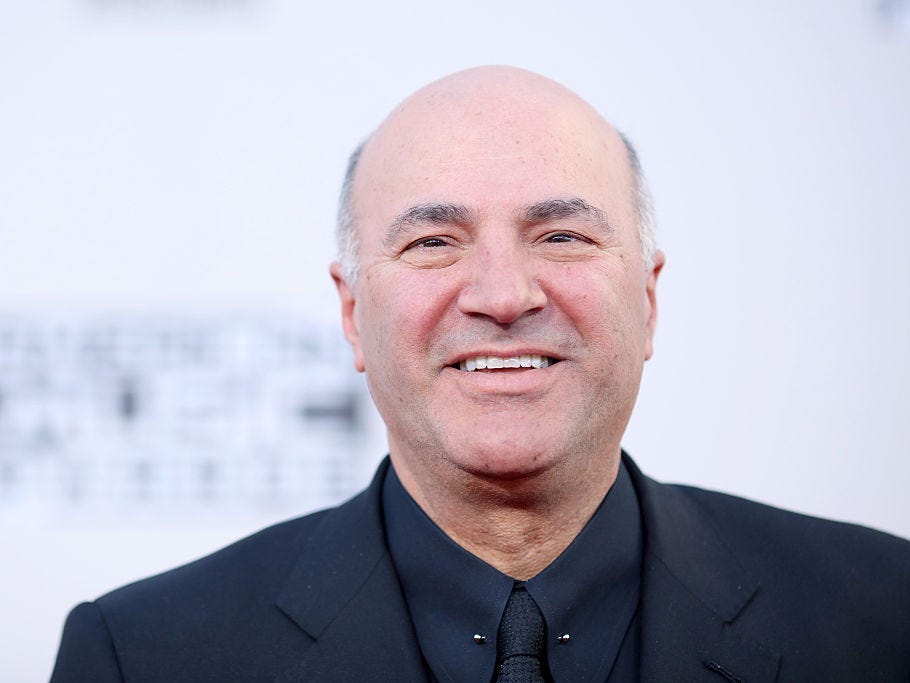
Mark Davis / Staff / Getty Images
- Dan Schawbel is a bestselling author, speaker, and host of "5 Questions with Dan Schawbel."
- In a recent episode, he spoke with Shark Tank investor Kevin O'Leary about his new show, Money Court.
- O'Leary says his mom's advice to save 10% of what you bring in has stuck with him throughout his carer.
- See more stories on Insider's business page.
Kevin O'Leary has been an investor on ABC's Shark Tank for 12 seasons and is the host of the new CNBC show Money Court. He made his fortune by founding SoftKey Software Products, which he sold to Mattel. O'Leary is also the chairman of O'Shares Investment Advisers and Beanstox. During our conversation, he spoke about the business and life lessons he's learned from his mother and his time on Shark Tank.
What financial advice did you receive from your mother growing up that's influenced your investment decisions today?
She told me to always save 10% of everything you bring in, whether it's a gift from your grandmother or whether you make it at the ice cream store or cutting lawn. This was really early advice, but it stuck in my head. It was all about saving each week and the idea that everybody can do it.
It's a mantra of mine, that everybody can save because there's just so much stuff you buy that you don't need. And if you put that money into the market, which generally is giving 6% to 8% a year for the last 100 years, you'll end up quite wealthy when you retire. It's the secret to success.
Why is having a money dispute the worst thing that can happen in a business?
Money disputes are difficult because they bring emotion into what should be a very pragmatic view of the world. And when these disputes involve people who have different views and can't compromise, that leads to litigation down the road.
This is actually the basis of my new show, Money Court. We've got some incredible cases where you realize these people are not being disciplined and they're letting their emotions tear their relationships to pieces. When you think about how important money is in your life down the road, particularly when you retire, you don't want to get into a dispute where you lose it because you let emotions overtake reality.
What lessons have you learned as a Shark Tank investor that have helped you solve disputes between business owners?
Years ago, my mother told me, "Always tell the truth and you'll never have to remember what you said." It's very good advice, but it's incredibly hard to do because people don't want the truth, they want to be lied to. I've used it successfully now for a long time. They call me the mean shark, but it's not true. I'm the truthful shark.
Recently, one of the litigants agreed to let me settle their case. And in agreeing to let me be an arbitrator for them, they said, "I don't really like Mr. Wonderful, but I trust him." I think that was probably the most important thing I heard when we started the show, because I would rather be trusted than win a popularity contest.
You have a variety of hobbies like collecting watches, photography, wine, and guitar. How do you find the time to indulge in these hobbies?
I've always believed that to be successful in business you have to embrace the chaos of art and you have to find some balance in your life. It's almost a ying and yang kind of idea. Watch collecting has become a huge driver for me because I really enjoy it as an asset class. In fact, taking that passion, I'm going to be moving into the NFT (non-fungible token) space.
What is your best piece of career advice?
My best career advice is to have balance. Of course, it's important to focus on your business, your investments, or whatever is your main driver for your life and how you sustain yourself. But if that's all you do, you won't be a balanced person. And you'll struggle with how you actually live your life.
The other thing I've learned is that you have to take care of yourself. If you're healthy and energetic and you have balance in your life, you can live a long time. Great advice again from my mother, she really focused on that and taught me about food and exercise. And it's funny how you go back later in life and think, "I should have listened more to what she was saying because she was 100% right."
Watch the extended video episode on YouTube
Listen to the audio episode
Subscribe to the "5 Questions with Dan Schawbel" podcast on iTunes, Spotify, Overcast, or others.